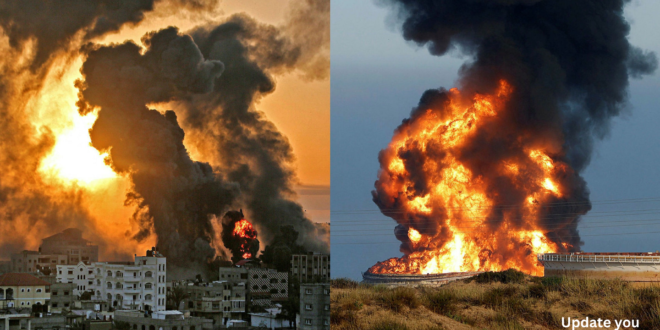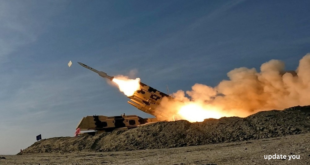Israel-Hamas War: As tensions in the Middle East reach a boiling point, you’re witnessing history unfold before your eyes. The Israel-Hamas conflict has taken a dramatic turn with a new wave of airstrikes, shattering any hopes for an immediate ceasefire. This escalation marks a critical juncture in the ongoing war, with far- reaching implications for regional stability and global geopolitics. As you seek to understand these rapidly unfolding events, it’s crucial to stay informed with the latest developments. This article will provide you with up-to-the- minute updates and expert analysis on the intensifying conflict, helping you grasp the complexities of this dire situation and its potential consequences.
Breaking: Israel Launches New Airstrikes in Gaza
Escalation of Conflict
Israel has launched a new wave of airstrikes in Gaza, marking a significant escalation in the ongoing Israel-Hamas war. According to recent reports, at least 40 Palestinians have been killed and 71 injured in Israeli attacks over the past 24 hours. These strikes come amid heightened tensions and fears of a broader regional conflict.
Wider Regional Implications
The situation remains volatile, with concerns that the conflict could spread beyond Gaza. Iran has threatened to retaliate against Israel, potentially with support from regional militias it has armed. This threat comes in response to the suspected Israeli assassination of a Hamas leader in Tehran. The international community is closely monitoring these
developments, as they could potentially trigger a wider Middle Eastern conflict.
International Response
As the violence intensifies, calls for a ceasefire are growing louder. The United States has announced it will boost its military presence in the Middle East by sending a fighter jet squadron and maintaining an aircraft carrier in the region. This move underscores the gravity of the situation and the international community’s efforts to prevent further escalation. Meanwhile, diplomatic efforts continue to find a peaceful resolution to the conflict, though progress remains elusive in the face of ongoing hostilities.
Hamas Fires Rockets Into Israel in
Retaliation
Escalation of Hostilities
In a significant escalation of the ongoing conflict, Hamas has launched a barrage of rockets into Israel, retaliating against recent Israeli military operations in Gaza. This latest round of violence underscores the volatile nature of the situation, with both sides locked in a cycle of attack and counterattack.
According to reports, the rocket attacks come in response to Israeli airstrikes that have resulted in civilian casualties, including an attack on a school sheltering displaced Palestinians in Gaza City.
Impact on Civilians
The ongoing conflict has taken a devastating toll on civilian populations. The attacks on the school in Gaza City’s Sheikh Radwan neighborhood, which was reportedly targeted twice, resulted in the deaths of 17 people. This incident has further exacerbated the humanitarian crisis in Gaza, where thousands of civilians have been displaced and are seeking shelter from the violence.
Regional Tensions
The exchange of fire between Hamas and Israel has raised concerns about a potential wider regional conflict. Recent events, including the assassination of Hamas political leader Ismail Haniyeh in Tehran, have heightened tensions and complicated efforts to negotiate a ceasefire. The United States has urged all parties to avoid “escalatory actions” and work
towards a peaceful resolution, highlighting the international community’s growing concern over the situation.
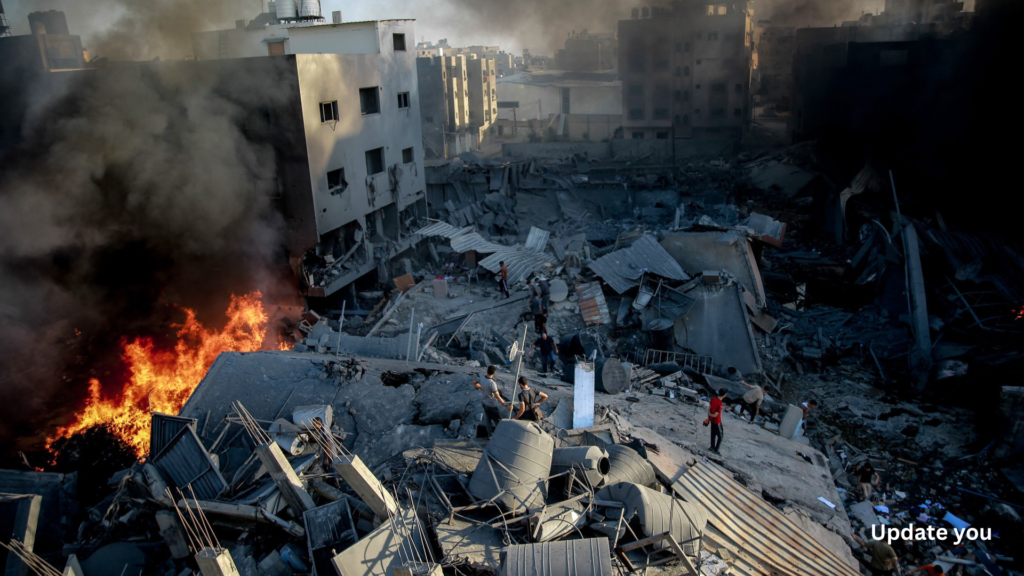
Rising Tensions and Calls for Ceasefire
Escalating Regional Conflict
The assassination of Hamas political leader Ismail Haniyeh in Tehran has dramatically heightened tensions across the Middle East. Iran has vowed to respond with “power and decisiveness,” while the “axis of resistance” alliance between Hamas, Hezbollah, and Iran is expected to intensify its actions. This escalation threatens to jeopardize ongoing ceasefire talks and potentially engulf the region in a wider conflict.
International Response and Diplomatic Efforts
The United States has taken swift action, deploying warships and fighter jets to the Middle East in anticipation of possible Iranian retaliation. Simultaneously, diplomatic channels are working overtime to prevent further escalation. Jordan’s king has discussed the possibility of an “immediate” ceasefire and hostage release deal with President Biden, while Egypt and Turkey are actively working to contain the conflict. Israel-Hamas War
Calls for De-escalation
As the situation remains volatile, there are growing calls for de- escalation and a ceasefire from various quarters. The UN Special Coordinator for the Middle East Peace Process has urged efforts to prevent further deterioration. Meanwhile, protests in Tel Aviv have seen Israelis demanding their
government reach a ceasefire and hostage release deal, marking 300 days since Hamas’ October 7 attack. The path forward remains uncertain, but the need for diplomatic solutions has never been more pressing.
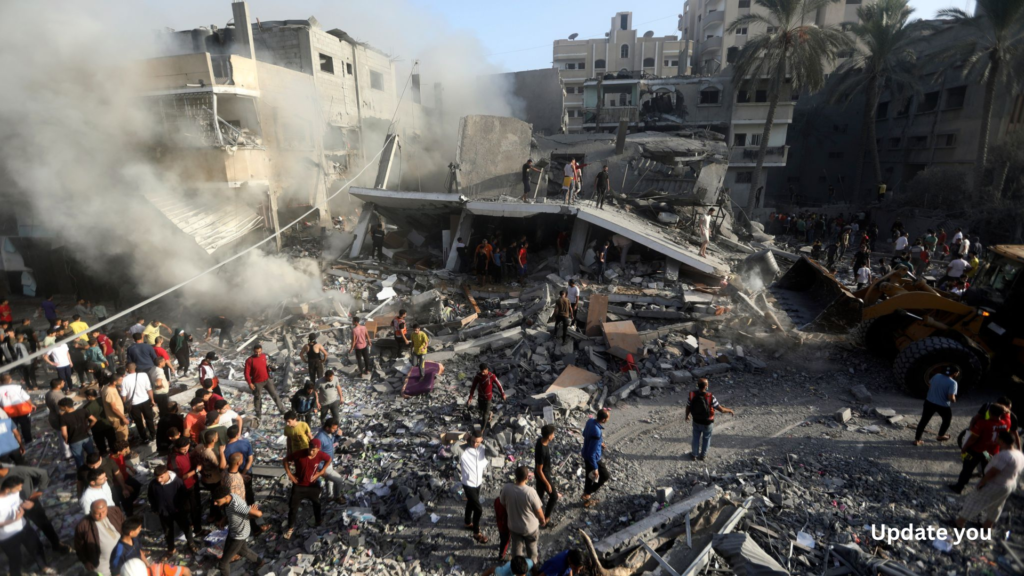
Civilian Casualties Mount as Fighting Intensifies
Gaza Under Fire: A Humanitarian Crisis Unfolds
The resumption of hostilities in Gaza has led to a devastating surge in civilian casualties. Since the fighting resumed on Friday, around 200 Palestinians have been killed, according to the Gaza health ministry. The overall death toll in Gaza since October has now surpassed 15,200, with a staggering 70% of
the deceased reported to be women and children.
International Concerns and Diplomatic Efforts
As the conflict escalates, the international community has voiced growing concerns. The U.S. government has increase pressure on Israel to minimize civilian casualties, with Vice President Harris and Defense Secretary Austin both emphasizing the critical need to protect non-combatants. These diplomatic efforts aim to address the mounting humanitarian crisis and shift public sentiment.
T Humanitarian Aid in Jeopardy
The intensification of the conflict has severely impacted humanitarian operations. The United Nations reports that aid
convoys and fuel deliveries to Gaza have been suspended, bringing relief efforts to a near standstill. The International Rescue Committee warns that the renewed fighting could “wip out even the minimal relief” provided during the recent truce, potentially leading to catastrophic consequences for Palestinian civilians. Israel-Hamas War
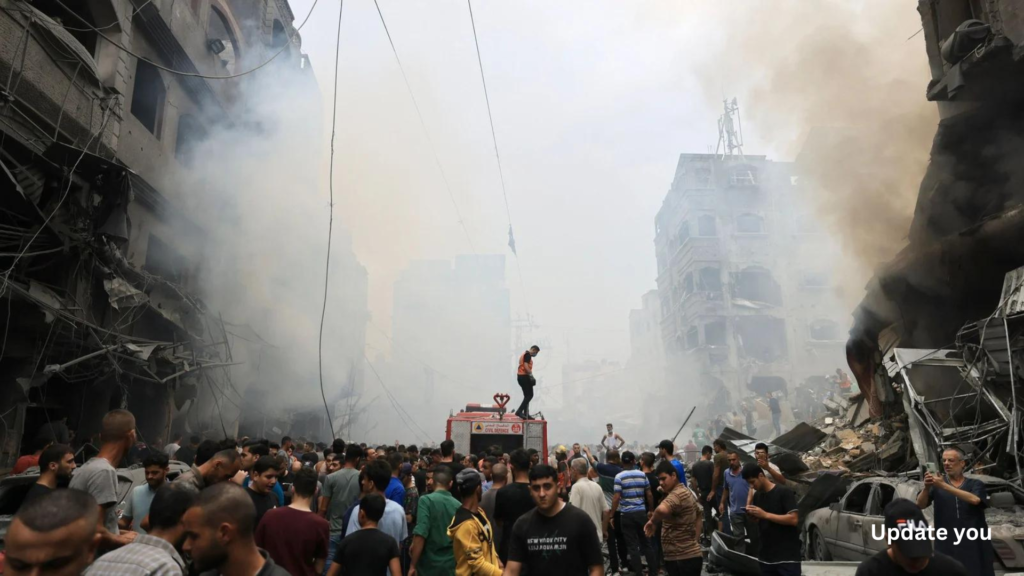
What’s Next? Expert Analysis on Potential Resolution
Diplomatic Efforts and UN Resolutions
As the Israel-Hamas conflict intensifies, diplomatic efforts to broker a ceasefire continue. The United Nations General Assembly recently voted overwhelmingly for a “humanitarian
truce”, highlighting global concern for civilian casualties. However, the non-binding nature of this resolution underscores the challenges in achieving a lasting solution. Experts suggest that future peace initiatives may need to address core issues such as the release of hostages and expanded humanitarian aid to Gaza.
Two-State Solution Remains Central
The UN Secretary-General has emphasized that a lasting resolution to the Israeli-Palestinian conflict can only come through a two-state solution. This longstanding approach remains a focal point for many international mediators. However, implementation faces significant hurdles, including disagreements over borders, security arrangements, and the status of Jerusalem.
Regional Stability Concerns
The potential for broader regional escalation looms large. Experts warn that the conflict could spill over into neighboring countries, destabilizing an already volatile Middle East. Some nations have proposed convening an international peace conference to address these concerns comprehensively. Such a gathering could provide a platform for multilateral negotiations and help prevent further escalation.
Conclusion
As this conflict intensifies, you must stay informed on the rapidly evolving situation. The escalating violence between Israel and Hamas has far-reaching implications for regional stability and global geopolitics. While a peaceful resolution seems distant, diplomatic efforts continue behind the scenes.
You can expect further developments in the coming days and weeks as both sides dig in. Remain alert to reputable news sources for the latest updates and analysis. The international community’s response will be crucial in shaping outcomes. As events unfold, reflect on the human toll of this war and the complex historical context fueling tensions. Your understanding of this crisis matters as its impacts ripple outward.
 Update
Update
